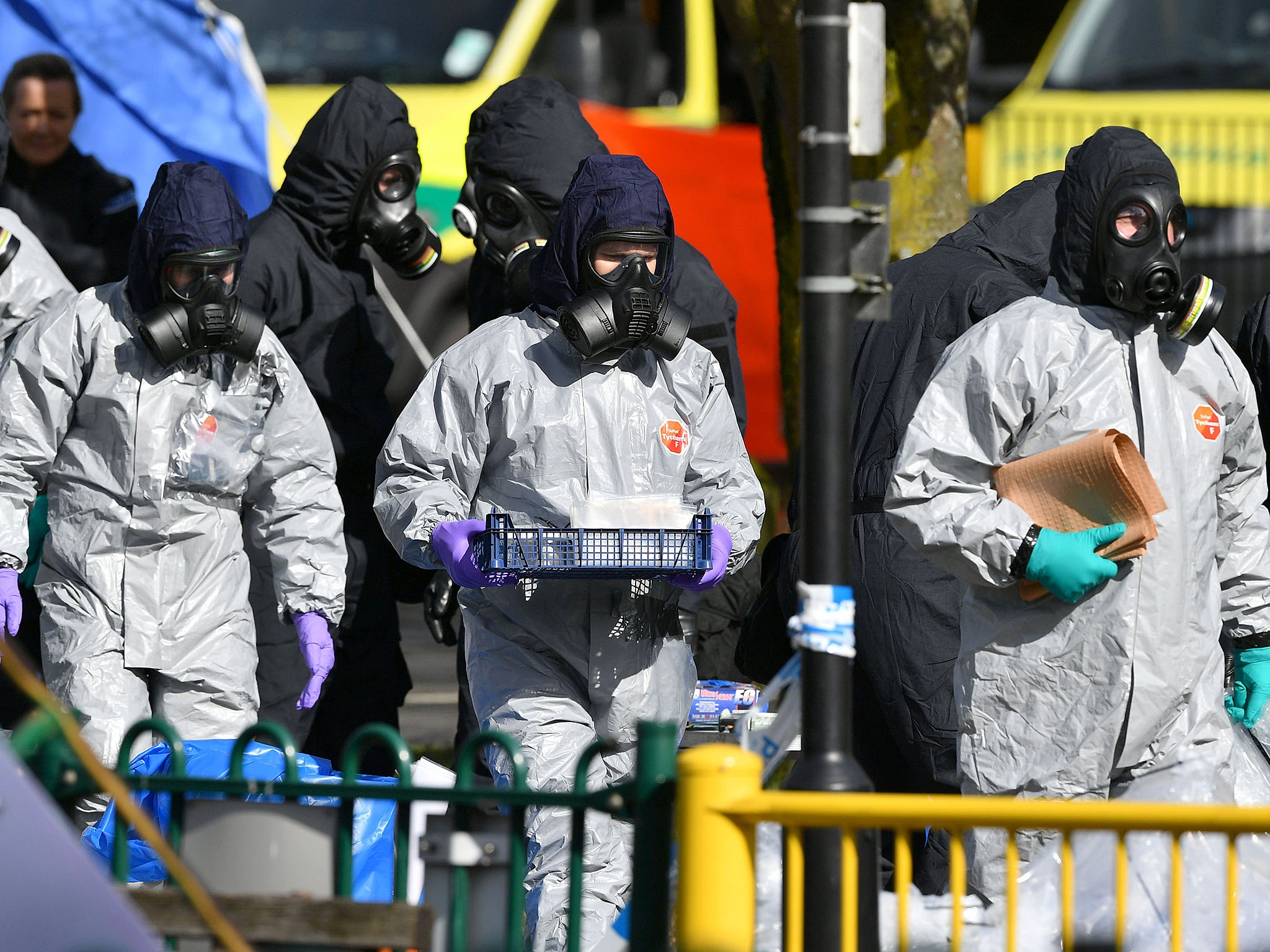Russian embassy says secret resettlement of Sergei Skripal and daughter Yulia 'will be seen as an abduction'
Daughter of former Russian spy discharged from Salisbury hospital
Your support helps us to tell the story
From reproductive rights to climate change to Big Tech, The Independent is on the ground when the story is developing. Whether it's investigating the financials of Elon Musk's pro-Trump PAC or producing our latest documentary, 'The A Word', which shines a light on the American women fighting for reproductive rights, we know how important it is to parse out the facts from the messaging.
At such a critical moment in US history, we need reporters on the ground. Your donation allows us to keep sending journalists to speak to both sides of the story.
The Independent is trusted by Americans across the entire political spectrum. And unlike many other quality news outlets, we choose not to lock Americans out of our reporting and analysis with paywalls. We believe quality journalism should be available to everyone, paid for by those who can afford it.
Your support makes all the difference.The Russian embassy in London said it would consider any “secret resettlement” of either Sergei or Yulia Skripal, the former Russian double agent and his daughter who were poisoned in Salisbury last month, as an abduction of its citizens.
If the pair were given new identities overseas, the opportunity to hear their version of events would be lost, the embassy said.
“The world, while having no opportunity to interact with them, will have every reason to see this as an abduction of the two Russian nationals or at least as their isolation,” the website said.
Ms Skripal was discharged from hospital earlier on Tuesday, more than a month after she was poisoned by a military-grade nerve agent along with her father.
At one point, doctors feared even if the Skripals survived they might have suffered brain damage.
Christine Blanshard, medical director of Salisbury District Hospital, told reporters Mr Skripal could be discharged in due course.
“We have now discharged Yulia,” Ms Blanshard said. “This is not the end of her treatment, but marks a significant milestone.”
“Her father has also made good progress,” she added. “Although he is recovering more slowly than Yulia, we hope that he too will be able to leave hospital in due course.”
Ms Skripal has been taken to a secure location, the BBC reported.
The Sunday Times said Britain was considering giving the Skripals new identities and a fresh life in the United States to protect them from further attacks.
Detective Sergeant Nick Bailey, who was also exposed to the nerve agent, was discharged from the hospital last month.
The British government, which accuses Russia of carrying out the attack, is likely to keep details about Ms Skripal’s location secret given the sensitivity of the case.
If she is well enough, she is likely to be extensively questioned by British security officials and police about her recollection of events leading up to the poisoning.
Russia says it has no role in the attack and has demanded consular access to Ms Skripal, who has Russian nationality.

The prime minister, Theresa May, has said the Skripals were poisoned with novichok, a deadly group of military-grade nerve agents developed by the Soviet Union in the 1970s and 1980s.
Russia has denied being involved in the first known use of such a nerve agent on European soil since the Second World War and suggested Britain carried out the attack itself to stoke anti-Russian hysteria.
Ms Blanshard, a doctor with 25 years’ experience, said nerve agents work by attaching themselves to particular enzymes in the body that then stop the nerves from functioning.
She said this had resulted in sickness and hallucinations.

Giving the first details about the medical treatment of the Skripals, Ms Blanshard said doctors had first sought to stabilise them to ensure that they could breathe and that blood could circulate.
“We then needed to use a variety of different drugs to support the patients, until they could create more enzymes to replace those affected by the poisoning,” she said.
“We also used specialised decontamination techniques to remove any residual toxins.”

Both Britain and Russia congratulated Ms Skripal on her recovery.
But the Russian embassy in London said Moscow needs “urgent proof [that] what is being done to her is done on her own free will”.
Asked for her reaction to the news Ms Skripal has been released from hospital, Ms May said: “Well obviously I welcome the fact that Yulia Skripal has been discharged from hospital and I wish her the best for her continuing recovery and I’d like to say a huge thank you to all the staff at the hospital in Salisbury who have looked after her and her father so well.”
Mr Skripal, who was recruited by Britain’s MI6, was arrested for treason in Moscow in 2004. He ended up in Britain after being swapped in 2010 for Russian spies caught in the United States.
Since coming in from the world of espionage, Mr Skripal, who has British citizenship, lived modestly in Salisbury and avoided the spotlight until he was found poisoned.
The poisoning led to a mass expulsion of Russian spies from countries aligned with Britain. Russia retaliated by expelling diplomats from countries which sided with Britain.

Join our commenting forum
Join thought-provoking conversations, follow other Independent readers and see their replies
Comments